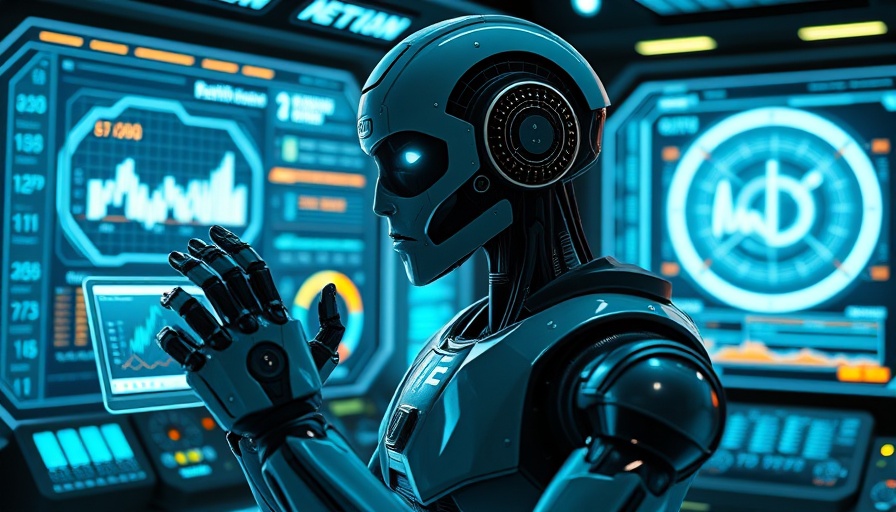
The Imperative Shift: AI's Role in Shaping Workforce Transformation
The future of work is not just a subject of speculation—it's a reality unfolding in front of our eyes, led by artificial intelligence (AI). Much like prior industrial revolutions transformed industries, AI is at the forefront of the Fourth Industrial Revolution, offering a plethora of opportunities and challenges. To navigate these changes effectively, it’s crucial for African business leaders to actively engage in governance strategies that address the implications of AI adoption within their organizations.
Unpacking the Transformation: AI's Dual Reality
AI stands distinct from previous technological shifts. Instead of merely replacing physical labor with machines, it redefines work protocols and job interactions. McKinsey’s 2023 report emphasizes that around 50% of companies globally have begun integrating AI into significant operational areas. Yet, transition strategies must be underpinned by deliberate governance to mitigate risks such as talent shortages and ethical dilemmas. If African organizations do not prioritize equitable digital transformation, they could face severe workforce inequities, leaving vulnerable populations, including women and youth, disproportionately affected.
Adoption Trends: Embracing the Inevitable
The AI landscape is evolving rapidly. As of 2030, projections indicate that as much as 30% of work activities may be automated, highlighting the need for organizations to adapt swiftly. This urgency is further exemplified by diverse sectors—including manufacturing, healthcare, finance, and logistics—leveraging AI to optimize their operational efficiencies. In essence, businesses that resist AI adoption risk not only obsolescence but also hindered growth and innovation.
Governance: A Strategic Necessity for AI Integration
Effective governance strategies serve as the backbone for sustainable AI implementation. Boards must champion workforce upskilling and ensure that all employees cultivate the necessary digital competencies. The World Economic Forum indicates that by 2025, there will be 97 million new roles requiring AI and automation skills, while 85 million traditional roles will become obsolete. This shift necessitates proactive investment in employee training and the cultivation of adaptive learning environments.
Ethical Considerations: Addressing the Human Element
The emergence of generative AI tools raises profound ethical questions regarding authorship, accountability, and potential biases inherent in machine-generated outputs. Governance frameworks must include guidelines for responsible AI use to ensure fair and equitable outcomes. Organizations must establish standards that prioritize human-centric AI applications and incorporate transparency in their algorithms.
Realizing Opportunities: The Path Forward
African organizations aiming for successful digital transformation must focus on developing an AI-literate workforce. This encompasses not only the upskilling of existing employees but also the cultivation of new talent capable of managing AI tools strategically and ethically. The voice of leadership is paramount in advocating for collaborative, inclusive practices that dismantle existing barriers to entry for marginalized groups.
Conclusion: Your Call to Action for Workforce Transformation
As we stand on the brink of a new era in workplace dynamics underscored by AI, the time for decisive action is now. Organizations must recognize the value of their human resources and leverage AI as a collaborative partner rather than a replacement. By cultivating a culture rich in AI awareness and upskilling, businesses can drive not only efficiency but innovation and resilience in the face of change.
 Add Row
Add Row  Add
Add 




Write A Comment